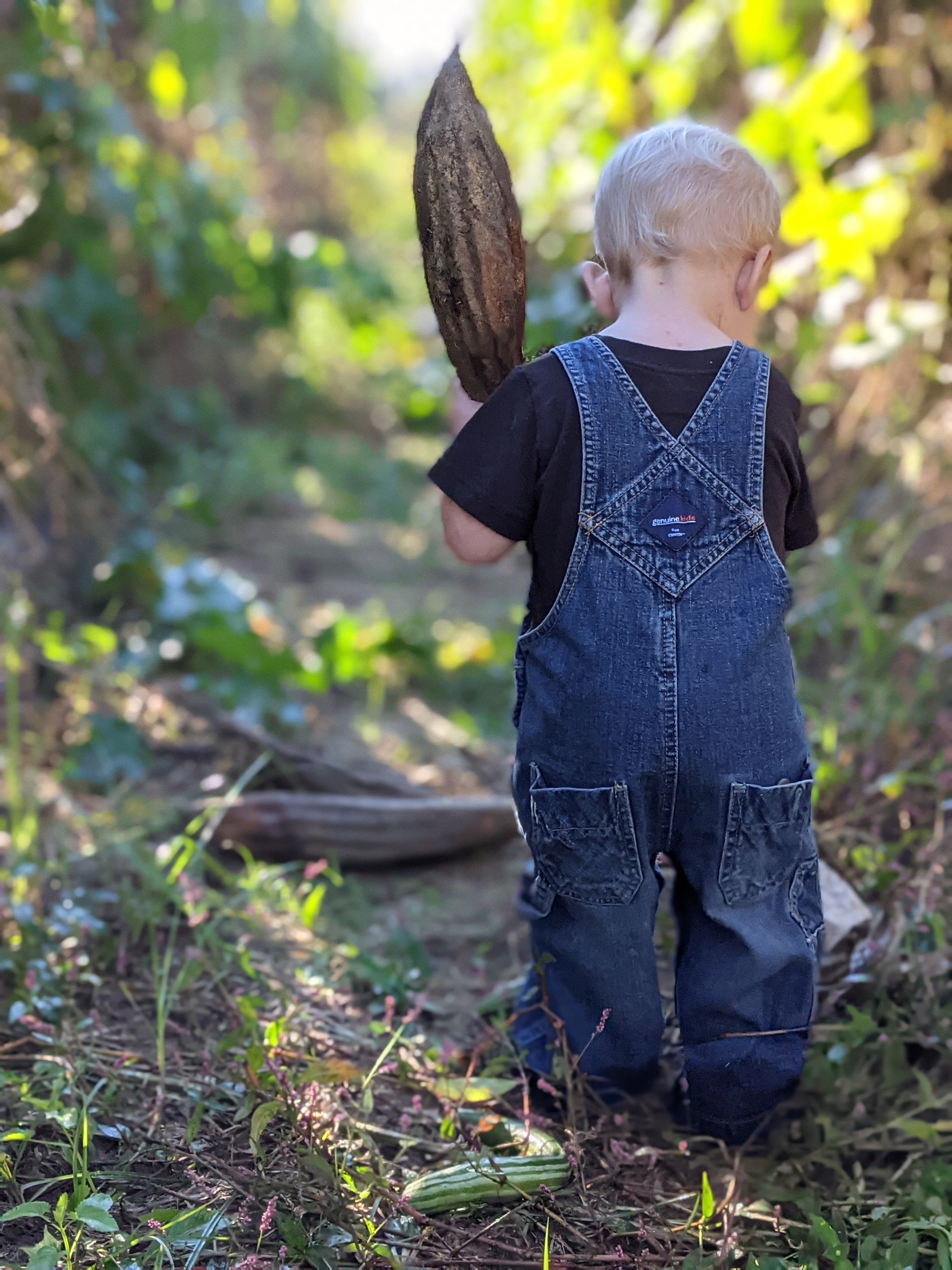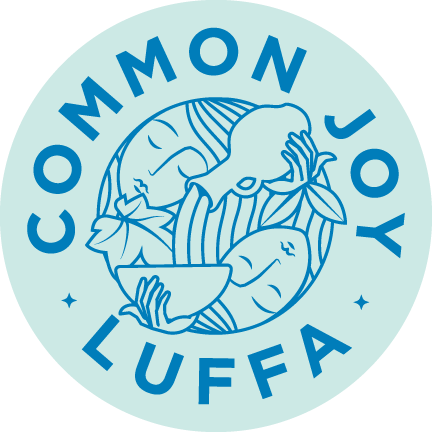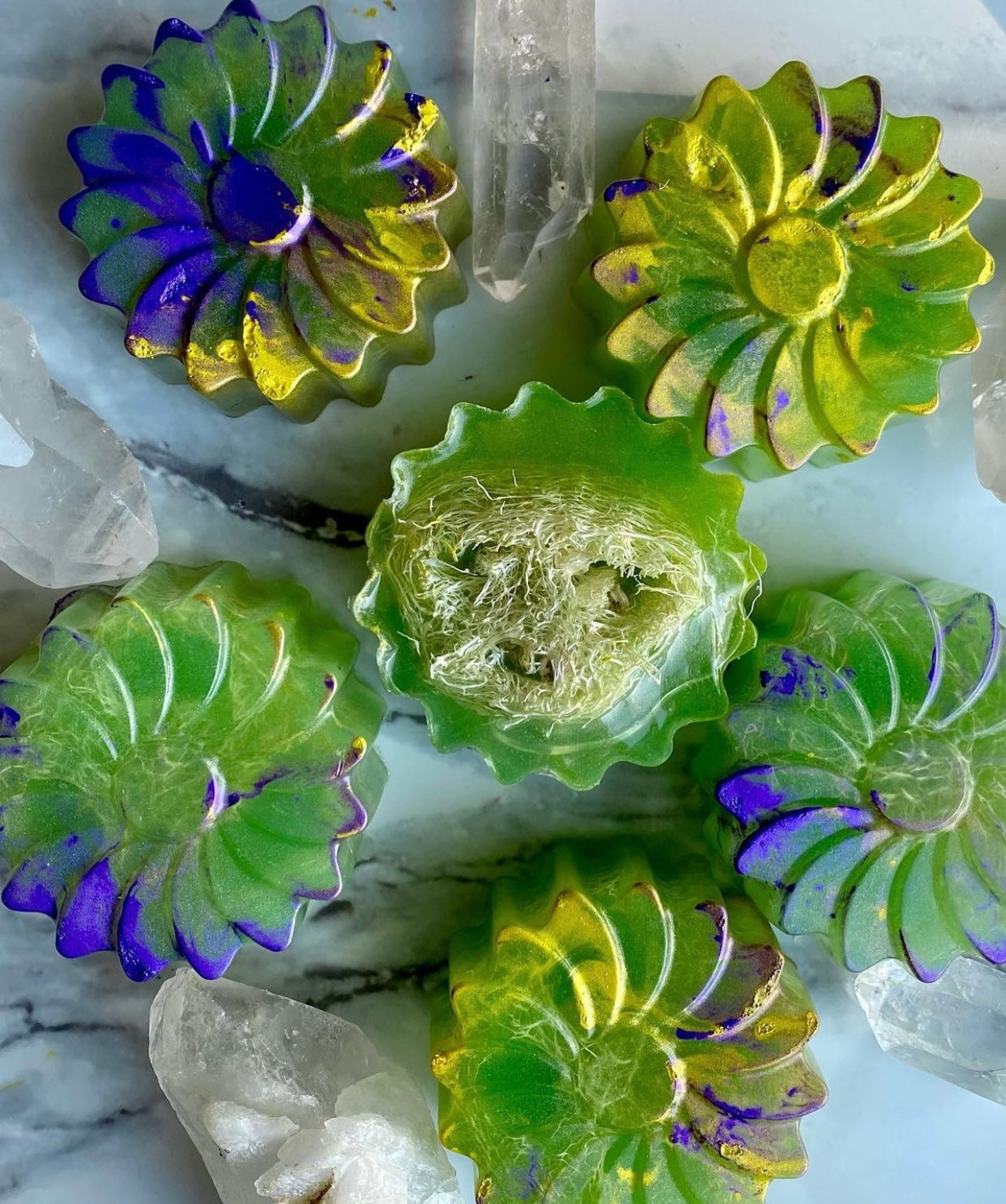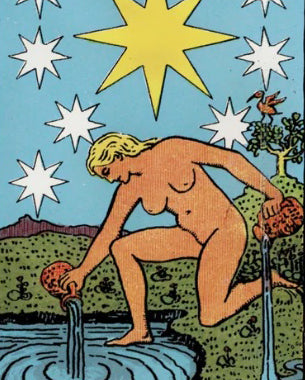
Luffa: The Common Joy story
The Common Joy story: How a chance encounter with a few luffa seeds changed everything
In the heart of South Carolina's agricultural landscape, you'll discover a venture that embodies ecological responsibility, sustainable living, and the pursuit of joy. Common Joy, established in 2017 by Farmer Brian Wheat, began with an unexpected encounter with a luffa plant.
During a visit to a fellow farmer's field, Farmer Brian noticed some beautiful, yellow-flowered vines growing up the side of an out building. He learned that these vines were a member of the gourd family, Cucurbitaceae. Thanks to South Carolina's subtropical climate, his farmer friend was already successfully growing crops like turmeric and ginger, which thrive in similar environments found in Southeast Asia. With amazement, Brian immediately saw the beauty in this plant and said “This is going to change things”. His friend laughed and gave him some heirloom luffa seeds, setting Brian on a luffa journey of his own.

Not only was it new and exciting, growing luffa here in the Lowcountry gave Farmer Brian a unique and distinctive identity as a South Carolina farmer. After planting the heirloom seeds, Farmer Brian learned new, innovative farming techniques outside of those used for the other fruits and vegetables he was accustomed to growing. As a longtime educator and advocate for sustainable agriculture, Farmer Brian also recognized that luffa was an excellent teaching tool to educate his students about this resilient crop that is naturally pest and disease-resistant and fully acclimated to the Lowcountry’s subtropical environment.
A versatile, sustainable crop hidden in plain sight?
Farmer Brian delved deeper into understanding why luffa wasn't being grown all over South Carolina, or the United States, for that matter. He found people that were familiar with the so-called ‘sponge gourd’ although it was mostly regarded in the memory of a few old timers and legacy back-to-the-landers, and currently only found its way into a few personal gardens or small market farmer tables.
It seemed that time was the only reason—luffa takes about 150-200 days to reach maturity, which is more than twice the amount of time it takes for other well-known gourds like pumpkins and watermelons. It also requires some additional time for drying, processing, and storing. Luffa had been neglected on our home turf for other more desirable and popular crops.
At the same time, he knew there were other forces at play outside of the time it took to mature and harvest. The culprit? Plastics. Back in the 1960’s, companies began mass-producing all sorts of things out of harmful chemicals like propylene, polystyrene, and polyethylene including one thing that we all have in our home: plastic sponges.

Not only was luffa a crop that seemed to be left to the history books, Farmer Brian couldn’t believe that this natural, sustainable alternative to plastic sponges was here the whole time. With the proliferation of microplastics and companies falsely claiming to be sustainable (hello, greenwashing), he knew people were craving truly sustainable products so he didn’t think twice about moving ahead.
He started planting more luffa, selling it at farmers markets, and even got hotels and other local businesses interested. He had a clear goal of getting the word out about this fantastic crop with myriad uses—from scrubbing and cleaning in the kitchen and the bathroom, to gardening and even crafting.
Supporting local, sustainable farming techniques
Common Joy's commitment to sustainability is further exemplified by their regenerative agricultural practices. Farmer Brian employs cover cropping, a fundamental part of his approach that enhances soil health and structure. The cultivation of buckwheat as Farmer Brian’s cover crop serves as a vital pollinator attractant, embodying a holistic and interconnected farming philosophy.

Starting with just a few seeds per plant site, Farmer Brian takes full advantage of South Carolina's extended growing season. As the plant matures, the inner flesh transforms into a fibrous matrix, which, when dried, is harvested and soaked in a gentle bleach solution to ensure clean, mold-free luffas ready for use.
Farmer Brian's fascination with this enigmatic crop catapulted his journey towards sustainability and ecological awareness. This mission solidified the purpose of Common Joy: to help people reconnect with the Earth through natural, regeneratively grown products that are sustainable and bring us joy. Common Joy's commitment also goes beyond ecological concerns to nurturing local economies and supporting small farms. By choosing luffa from local farmers, consumers empower local businesses and embrace biodegradable alternatives.

But Common Joy is meant to be more than just an introduction to the remarkable luffa plant—it redefines our approach to everyday products and their impact on our planet. For Farmer Brian Wheat, the legacy of South Carolina's lush landscape is preserved with each luffa sponge, inspiring a world where sustainability and joy go hand in hand.
The Common Joy story is a tale of transformation, from a chance encounter to a sustainable movement. Through the growth of Luffa cylindrica, Common Joy bridges ecological consciousness, joy, and practicality, inviting everyone to reconnect with the Earth while championing sustainable choices.
One sponge for all.
All plant. All purpose. All people.



